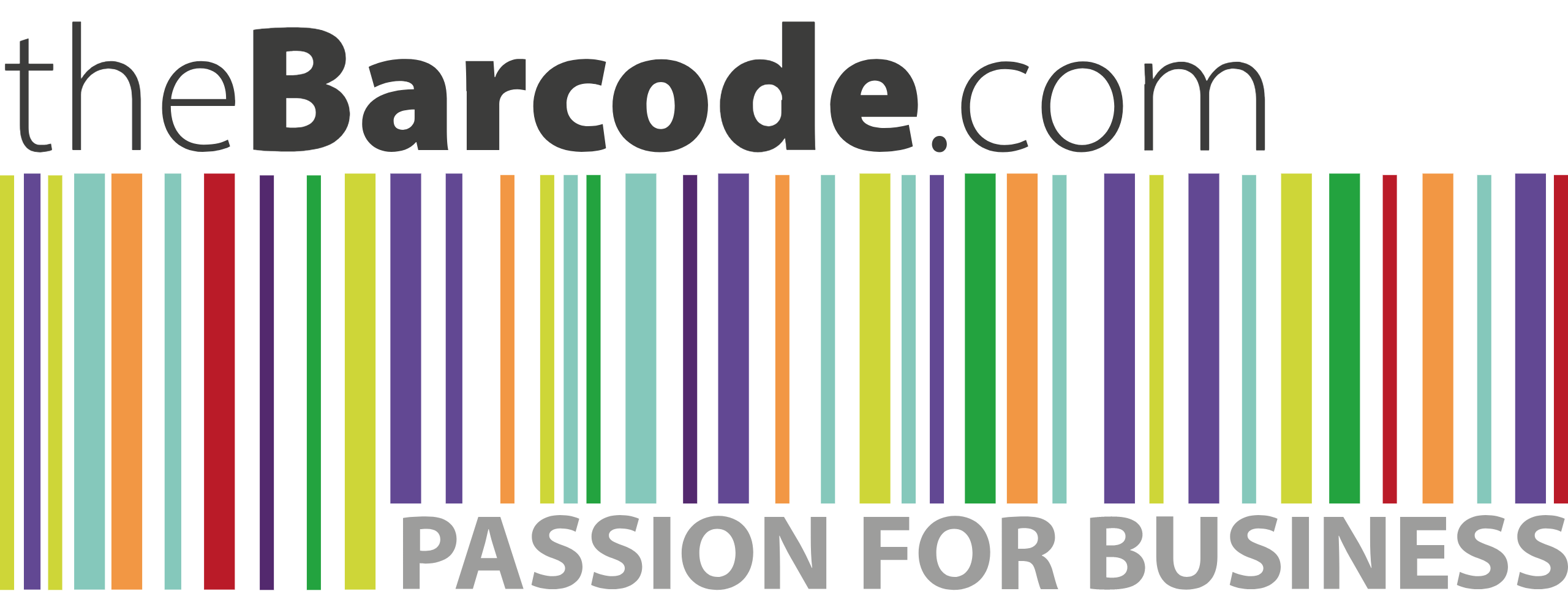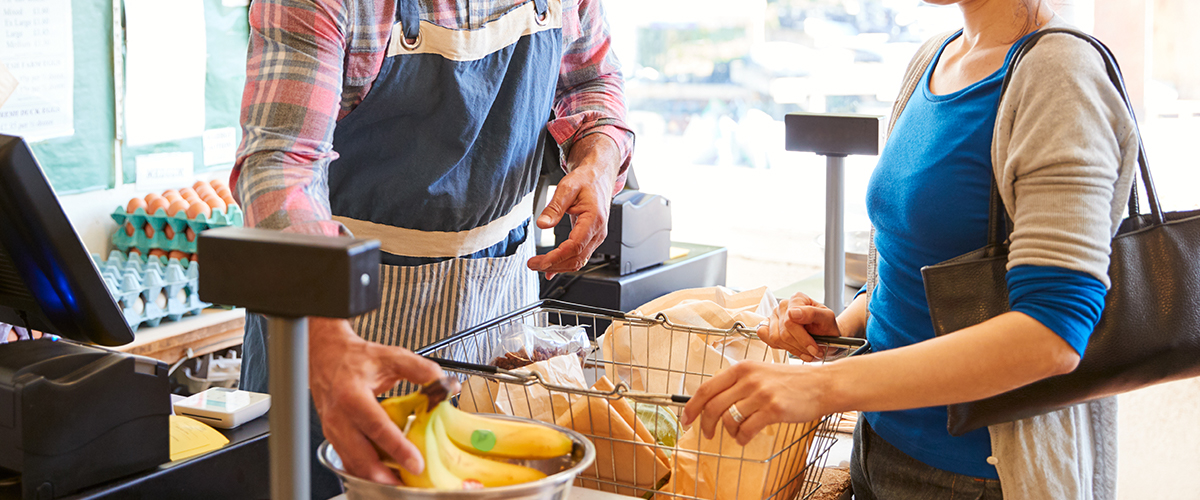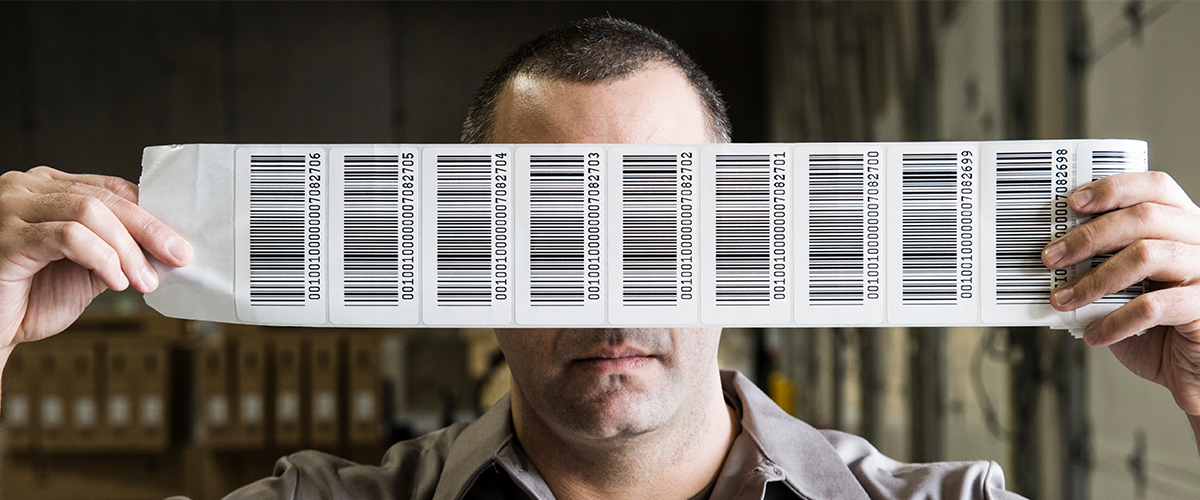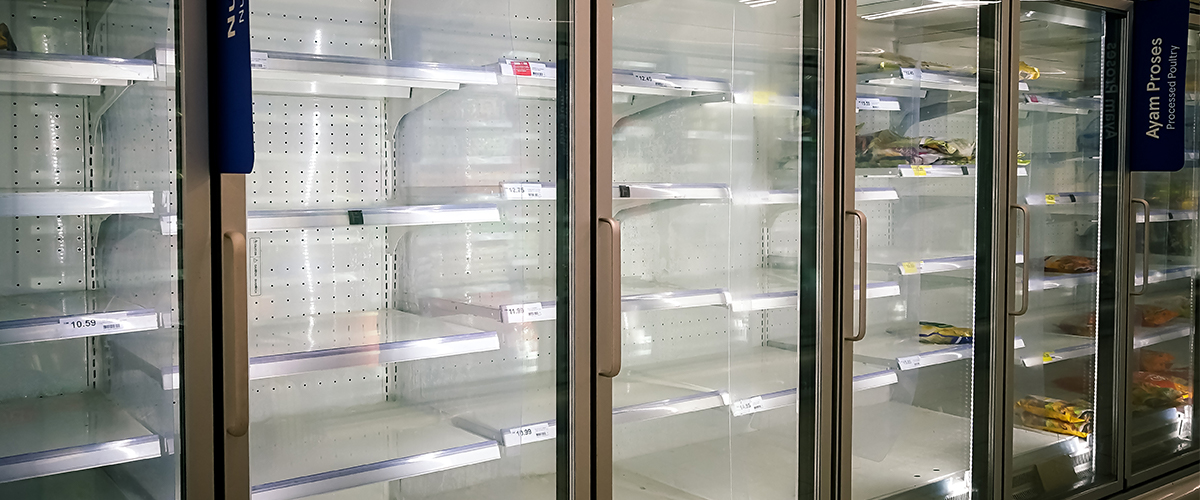An Essential Business
Nothing is better than a supermarket or franchise grocery store for those looking for a recession-proof business. Everyone has to eat, and no matter what location or size, a supermarket will likely thrive as long as the prices are reasonable. But supermarkets sometimes fail; some reasons could be poor service, starting too big too quickly, or inadequate staffing.

Get Some Grocery Business Knowledge
There is a lot more to supermarkets than selling bread and milk. Unless you are already in the supermarket business, we don’t recommend going all-in right away. Try to learn about the supermarket business by taking a few online courses on the retail industry or working for a supermarket business for 3-6 months. You’ll need to know your vendors, select employees, deliver what your customers are looking for, set prices to make the store profitable, etc. You can read all you want, but it would be best to get some hands-on knowledge.
Here are some handy links to get you started
- Retail Learning Institute
- IGA Coca Cola Institute
- Free Retail Training– NGA
- Retail Management Certificate– FMI
- Stanford Introduction To Food & HealthLearn Retail–edX
Grocery Store Layout
One of the biggest mistakes many new entrepreneurs make is opening an enormous supermarket right off the bat. There are already many big chain supermarkets and franchise grocery stores in almost every city, and they have cornered the market. Opening a larger supermarket immediately also comes at a higher cost and requires more employees, merchandise, and higher leasing costs. If there are fewer customers than your competitors, the store’s viability is not guaranteed. This determination is a recipe for failure.
When starting out in the supermarket business, it’s usually best to start with a small supermarket or a gourmet mini-market to test out the waters. If the company is successful, you can always go big later on. Remember, supermarkets are in the business of making money, so regular franchise operations will tend to stifle you by offering low prices. They already have established customers and can afford to buy in bulk. When you are just starting out, you might not have the buying power of larger chain stores.

What Type Of Supermarket?
You have three choices:
- Build one from scratch: This is the most expensive option and only a good idea in an area with no other supermarkets. The chance of success is high if you are the only store in a community.
- Buy into a franchise grocery store: Many supermarket franchises are for sale but are expensive. At a minimum, these franchises can cost $700K. Plus, many of them have franchise fees, administrative fees, and royalty fees. The advantage is that the franchise will help with marketing, provide the merchandise and assist with financing. The downside is that you have little independence.
- Buy an existing supermarket: If you are starting out, buying an existing supermarket is the best option. As long as the supermarket functions well and makes a profit, it is worthwhile. But you must thoroughly check out the location, financial status, and reputation. The advantage of buying a running store is that it is already stocked with merchandise, the staff is trained, and you will not have to worry about licenses and permits. A mini-supermarket may cost anywhere from $200K to $400K.
Is A Supermarket Profitable?
In general, profit margins for supermarkets can vary from 13%-20%. This also depends on the type of food and quantity. The take-home pay for a small supermarket owner averages about $120K a year.
How Can I Increase Profits In My Supermarket?
- Offer online shopping and delivery.
- Have self-serving counters, so you need fewer cashiers
- Offer ready-made meals
- Improve your supply chain so that you have fewer stale or unsold items
- Offer same-day delivery of groceries
Variety – Key Food Supermarket Models
- IGA grocery
- Indian supermarket
- International food store
- Ingles grocery
- Chinese supermarket
- 24-hour grocery
- Korean grocery
- Shaws market
- Safeway supermarket
- Amazon Fresh supermarket
- Sedano’s
- Target supermarket
- Oceans supermarket
- Kroger supermarket
- Foodtown supermarkets
- Lucky’s grocery
- Publix supermarket
- Postmates Groceries
- Aldi groceries
- Hannafords to go
- Costco groceries

Grocery Store Business Plan
Supermarkets today have gone hi-tech, and many also offer online services, including delivery. We are not saying that running a supermarket is easy- it is challenging because most businesses rely greatly on third-party players like employees, vendors, and customers. If you make any of these players uncomfortable, your outlook is not great. For those wanting to open a supermarket, here are some tips.
It would help if you made a business plan to get to know the supermarket business in your local area. Your business plan will help you anticipate future issues, which will, in turn, help you become successful. Your business plan should contain the following:
- What type of supermarket should I open?
- What is the size of my supermarket?
- Where is my supermarket located?
- What permits and licenses are required?
- How will I market my business?
- Who is my competition?
- What are the negatives of running a supermarket?
- Is the supermarket business profitable?
Here are some links to help you create your business plan
- Grocery Store Business Plan Template
- Grocery Store Business Template– GROWTHINK
- Supermarket Business Plan Template– Business In A Box
- Mini Supermarket Business Plan- Profitable VentureSupermarket Business Plan Template- Biz Move
LLC Startup Supermarket Identity
- Form a legal entity like a corporation
- Obtain an EIN
- Register for state and federal taxes
- Open a business account
- Obtain workers’ compensation insurance
Check out these few companies that can assist you in getting your LLC started.
Here are a few government links you might want to visit
IRS Website
This site by the IRS is a must-see when beginning your LLC

Do I Need Insurance To Run A Supermarket?
Yes, it would help if you had general insurance to protect against theft, vandalism, and fire. It would be best to have liability insurance to protect you if a customer slips on a wet floor and decides to sue.
Here is a list of some standard insurance companies
- Biberk
- Three Insurance
- Next Insurance
- Thimble
- Geico
- Insureon
- Mercury Insurance
- Allstate
- Chubb
- CNA
- Farmers Insurance
- Huckleberry
- State Farm
- Hiscox
- Nationwide
- The Hartford
- Travelers-Business Insurance
- Liberty Mutual
- Progressive Commercial
Best Places To Get Small Business Insurance
What Are The Permits And Licenses Required For A Supermarket?
Before you can open a supermarket, you will need to obtain many permits and licenses, many of which are specific to food safety. Every state has its own rules and regulations, but in general, you will need the following:
- Business License
- Fire department permit
- Air and water pollution control permit
- Sign Permit
- Seller’s Permit
- Health department permits
- Liquor permit
- Grocer’s license
- Resale certificate
- Certificate of occupancy
- Tobacco license
- Alcohol License
- Alarm system permit
What Are The Cons Of Running A Supermarket?
- High turnover of employees
- A significant investment of capital to start.
- It is challenging to offer personal attention to every customer
- Requires ample space and storage facilities
- Theft is a common problem
- Returns are a common problem
- Customers can be finicky

Things To Consider
- Introduce self-service whenever possible- it reduces staff requirements
- Make shopping fun, easy and quick
- Install pay self-service counters
- Consider home delivery
What Are Start-up Costs For A Supermarket Business?
- Cost of leasing property
- Design of the store
- Purchasing appliances and furniture
- Purchasing inventory
- Fees for the lawyer and accountant
- Fees for the licenses and permits
- Marketing
- Installing security, billing counters, cashiers, self-serve, etc
- Employee salaries
- Insurance
You will quickly need anywhere from $500K to $800K for an average-sized supermarket. Plus, you will need emergency funds to help support the store for at least six months if the business does not pick up.

Grocery Business Funding
Here are a few of your options
Small Business Administration
The Small Business Administration, SBA has a program to fund new startups and is worth a look
Supermarket Location
Like any business, you’ll need to open a store far from your competitors. This can be hard to do since there are supermarkets all over the place. And if you do open near another supermarket, differentiate your business by offering something unusual or catering to a diverse customer range.
For example, some supermarkets cater to wealthy clientele because they are more likely to purchase exotic foods with higher margins, specialty foods, etc. Others run supermarkets that cater to a particular ethnicity, like Chinese or Indian people. Depending on the location, you may want to open a popular supermarket franchise that caters to everyone. A franchise supermarket ensures that there will always be customers as long as you have competitive pricing.
Here is a list of some popular commercial real estate companies:
- Crowd Street
- LoopNet
- Crexi
- Commercial Brokers Association
- Commercial Cafe
- Catylist
- Brevitas
- Office Space
- Quantum Listing
- Rofo
- SquareFoot
Grocery Store Pricing
Rest assured, the number one thing that most consumers are looking for in a supermarket is a place to buy cheap groceries. One of the critical reasons supermarkets fail is that they fail to consider the cost to their customers. Even if you do not sell the most affordable foods, at least have prices comparable to other supermarkets.
With ubiquitous internet availability, many shoppers compare grocery prices online before they leave home. So if you are selling a loaf of bread for $5 when it usually sells for $3, your store will be unpopular, and you will end up with stale baked goods. No one wants to pay $3 for a pound of sugar at an exotic supermarket when you can buy it for $1 at the local grocery store. Always check out the prices in other supermarkets before you set yours- customers will drive several miles if they can buy cheaper milk elsewhere.
Supermarket Employees
One major problem with running a supermarket is the high turnover of staff. Most of your supermarket team are hardworking, blue-collar people with little formal education. The staff makes close to minimum wage, so they are always looking for better jobs. A cashier’s job is not difficult, but it involves dealing with people all the time, listening to complaints, and being on their feet for 6-10 hours daily. Plus, your employees will call in sick from time to time. Selecting employees who share your vision and want to work hard is best. To retain them, you will need to pay them well, treat them properly, and offer them incentives, including bonuses for a job well done. At the same time, you will always need to have a list of candidates you can call when your regular staff is absent or sick.
Grocery Store Staff Requirements
A supermarket needs a variety of staff that includes the following:
- Cashiers
- Head of the store
- Accountant
- Manager
- Stock supervisor
- Grocer
- Seafood/butchers
- Bakers
- Cleaning staff
- Restocking staff
- Delivery staff
- Customer service
Wholesale Grocery Distributors
Before you even begin with your supermarket business, you must connect with vendors who can supply your merchandise on time. You will need to talk to other supermarket owners to determine which vendors you should work with because not all are reliable. Some vendors not only provide your inventory but will also help promote your business. More importantly, most vendors also keep track of your merchandise and refill your stock when the supplies are low.
Supermarket POS
Here are a few links to check out
Supermarket Inventory – Stock Management
When running a supermarket, you must try to stock everything your customer needs. One thing that irks your customers is running out of merchandise they need. Because perishables may not sell out and may spoil, some supermarkets have limited quantities, but this is a choice you will have to make. But outside of perishables, you should have all the items a customer needs. The last thing you want is for the customer to go elsewhere to do their shopping.
Here are some links to supermarket supply companies
- Thomasnet: Supermarket Equipment
- Supermarket Equipment– Lozier
- Grocery store Equipment-Raimac
- All-In-One Supermarket Equipment- Prestige
- Store & Supermarket Equipment- Goodada
- List of Store & Supermarket SuppliesCommercial Kitchen & Grocery Store Supplies–RAC
What Equipment Do I Need For A Supermarket Business?
- Antitheft devices
- Bagel boards
- Bar-code reader
- Beverage carriers
- Bins
- Box cutters
- Buffet warmers
- Buckets
- Carts to transport the merchandise
- Cash registers
- Chairs
- Cleaning equipment
- Cooling racks
- Contact labels
- Containers
- Conveyor belt
- Cooler doors
- Crates
- Credit card payment system
- Display cabinets
- Display lights
- Display signs
- Disposable trays, cups, plates, utensils
- Drums
- Equipment for break room (kettle, coffee pot, microwave, fridge, table, chairs)
- Food packaging wraps
- Freezers
- Funnels
- Garbage cans
- Grocery baskets
- Ice machines
- Label gun
- Ladders
- LED lights
- Molds for cakes
- Office furniture (PC, printer, scanner, fax, shredder)
- Pails
- Pallets
- Pans
- Plastic bags
- POP displays
- POs
- Posters
- Pots
- Racks
- RFID scanners
- Rotisserie ovens
- Sanitizing supplies
- Scales
- Scanners
- Salad bar equipment
- Security mirrors
- Self-checkout stands
- Security cameras
- Shelves
- Shopping carts
- Store trucks
- Tables
- Ticket dispensers
- TV and stereo system
- Upright freezers

Management Software Adapted To Your Supermarket
When you own a supermarket, you’ll process a large number of people every day. To save as much time as possible, you’ll need to equip your business with an efficient and straightforward point-of-sale system.
With the right point-of-sale system, your business will be ready to process customers intuitively and efficiently and manage your stock automatically. Of note is that many software companies offer hundreds of features such as customer monitoring, advanced statistics, automated accounting, a connection with your e-commerce site, etc.
Conclusion
Operating a supermarket is a good business because food is essential for survival. Even though there are food stores everywhere, a large population is still looking for something different. The supermarket business demands a high upfront investment, but there is no reason why it cannot succeed if run properly. Rest assured, running a supermarket is a 24/7 job that requires hard work and dedication. For those who persist, the rewards are immense.










